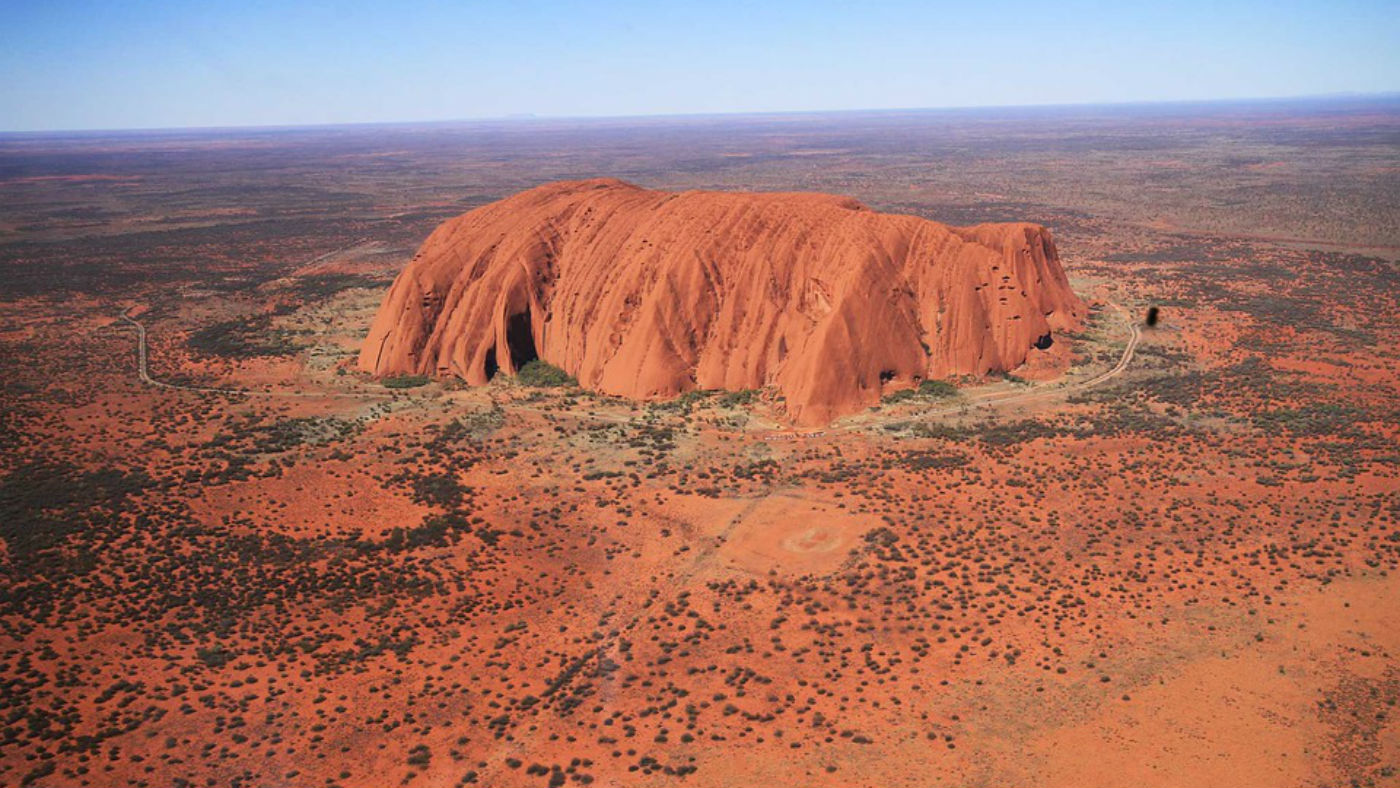Uluru will be closed to climbers from 2019
Sacred site is ‘not a theme park’, says indigenous leader

A free daily email with the biggest news stories of the day – and the best features from TheWeek.com
You are now subscribed
Your newsletter sign-up was successful
Visitors to Uluru, formerly Ayers Rock, are to be banned from climbing on the 863m-tall sandstone monolith, a sacred site for local indigenous peoples.
The governing board of the Uluru-Kata Tjuta National Park - made up of eight representatives of the land’s traditional aboriginal owners and three representatives from Australia’s National Parks - unanimously voted in favour of the ban.
Chairman of the board Sammy Wilson, who is also a senior traditional owner, said that Uluru is “not a theme park like Disneyland”.
The Week
Escape your echo chamber. Get the facts behind the news, plus analysis from multiple perspectives.

Sign up for The Week's Free Newsletters
From our morning news briefing to a weekly Good News Newsletter, get the best of The Week delivered directly to your inbox.
From our morning news briefing to a weekly Good News Newsletter, get the best of The Week delivered directly to your inbox.
"Some people, in tourism and government for example, might have been saying we need to keep it open but it's not their law that lies in this land," he told Fairfax Media.
Uluru plays a central role in the lore and mythology of the local Anangu indigenous people, and is considered a sacred site. Tribal leaders have long raised concerns about disrespectful behaviour by tourists, not limited to climbing.
In 2010, there were calls for a French exotic dancer who stripped to a bikini on the summit to be deported from Australia, The Daily Telegraph reported at the time.
David Ross, the director of the Central Land Council, which represents the traditional owners, said that the board’s vote represented “righting a historic wrong”.
A free daily email with the biggest news stories of the day – and the best features from TheWeek.com
"This decision has been a very long time coming and our thoughts are with the elders who have longed for this day but are no longer with us to celebrate it," he said.
The ban will go into effect from 26 October 2019 - 34 years to the day since the sacred site was ceremonially “returned” to the Anangu people
For decades, tourists were encouraged to scale Uluru, one of Australia’s most recognisable landmarks, but in recent years more and more people have chosen respect the signs placed at the base by its indigenous owners urging visitors not to climb.
Ten years ago, around 38% of visitors climbed Uluru, Fairfax Media reports. That number is estimated to have dropped to between 16 and 20%.
Uluru “should be as special to white Australians as it is to its Indigenous owners,” Sydney Morning Herald columnist Julie Power wrote earlier this year. “To climb the rock takes a determination to be ignorant of those Australians who cared for this country for 65,000 years before white man arrived.”
At least 35 people are known to have died climbing Uluru, News.com.au reports, most of them from heart attacks or slipping on the rock face after rainfall.
-
 The environmental cost of GLP-1s
The environmental cost of GLP-1sThe explainer Producing the drugs is a dirty process
-
 Greenland’s capital becomes ground zero for the country’s diplomatic straits
Greenland’s capital becomes ground zero for the country’s diplomatic straitsIN THE SPOTLIGHT A flurry of new consular activity in Nuuk shows how important Greenland has become to Europeans’ anxiety about American imperialism
-
 ‘This is something that happens all too often’
‘This is something that happens all too often’Instant Opinion Opinion, comment and editorials of the day
-
 Epstein files topple law CEO, roil UK government
Epstein files topple law CEO, roil UK governmentSpeed Read Peter Mandelson, Britain’s former ambassador to the US, is caught up in the scandal
-
 Iran and US prepare to meet after skirmishes
Iran and US prepare to meet after skirmishesSpeed Read The incident comes amid heightened tensions in the Middle East
-
 Israel retrieves final hostage’s body from Gaza
Israel retrieves final hostage’s body from GazaSpeed Read The 24-year-old police officer was killed during the initial Hamas attack
-
 China’s Xi targets top general in growing purge
China’s Xi targets top general in growing purgeSpeed Read Zhang Youxia is being investigated over ‘grave violations’ of the law
-
 Panama and Canada are negotiating over a crucial copper mine
Panama and Canada are negotiating over a crucial copper mineIn the Spotlight Panama is set to make a final decision on the mine this summer
-
 Why Greenland’s natural resources are nearly impossible to mine
Why Greenland’s natural resources are nearly impossible to mineThe Explainer The country’s natural landscape makes the task extremely difficult
-
 Iran cuts internet as protests escalate
Iran cuts internet as protests escalateSpeed Reada Government buildings across the country have been set on fire
-
 US nabs ‘shadow’ tanker claimed by Russia
US nabs ‘shadow’ tanker claimed by RussiaSpeed Read The ship was one of two vessels seized by the US military